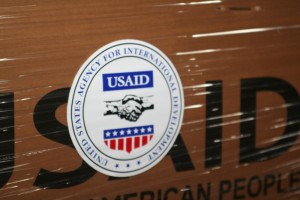
On June 29, the House Foreign Affairs Committee began circulating a draft of the Global Partnerships Act of 2010, which will establish a framework for effective, transparent, and accountable U.S. foreign assistance. The legislation is being designed to replace the complicated and outdated Foreign Assistance Act of 1961. The draft document is only the first part of a much longer bill, but it does articulate the purposes of U.S. foreign assistance, and the principles and goals that will guide the U.S. approach.
There are a number of provisions aimed at making U.S. foreign assistance more strategic, effective, and elevated in foreign policy. We have been outspoken advocates for a number of critical reforms that are now included in the bill, including:
- A Development Policy Committee, made up of senior representatives from USAID and 14 other federal agencies, which will elevate the development voice in the interagency by reporting directly to the President on U.S. development policy.
- A United States Strategy for Global Development, prepared by the Development Policy Committee every four years, which identifies goals, clarifies the roles of different agencies, and estimates resources needed to carry out U.S. development efforts.
- Country and sector strategies for development, prepared by USAID Mission Directors and the USAID Administrator respectively, which will facilitate strategic, coordinated, and transparent assistance allocation and delivery.
- A major emphasis on consultation and partnership, including close relationships between the Administration and Congress, and working with non-government organizations and private sector companies to leverage all of the U.S. expertise and resources available to make U.S. development strong.
- A great deal of attention to monitoring and evaluation, and to results- and data-driven decision-making, which will help ensure that U.S. development efforts adapt to conditions on the ground, build on best practices, and inform future programs so that this critical taxpayer money is spent efficiently.
There are still a number of questions that will need to be answered, but I am encouraged by the progress toward comprehensive foreign assistance reform that reflects the critical role development must play in U.S. foreign policy. I hope the Committee will continue to make consultation with the community and the Administration a priority as it works toward a complete draft bill.


 On June 29, the House Foreign Affairs Committee began circulating a draft of the Global Partnerships Act of 2010, which will establish a framework for effective, transparent, and accountable U.S. foreign assistance. The legislation is being designed to replace the complicated and outdated Foreign Assistance Act of 1961. The draft document is only the first part of a much longer bill, but it does articulate the purposes of U.S. foreign assistance, and the principles and goals that will guide the U.S. approach.
On June 29, the House Foreign Affairs Committee began circulating a draft of the Global Partnerships Act of 2010, which will establish a framework for effective, transparent, and accountable U.S. foreign assistance. The legislation is being designed to replace the complicated and outdated Foreign Assistance Act of 1961. The draft document is only the first part of a much longer bill, but it does articulate the purposes of U.S. foreign assistance, and the principles and goals that will guide the U.S. approach.